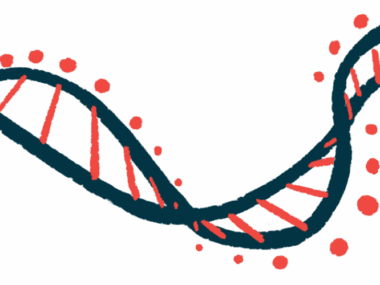Avidity’s del-desiran for DM1 named orphan drug in Japan
Phase 3 trial now testing therapy in myotonic dystrophy type 1 patients
Written by |

The Japan Ministry of Health, Labour and Welfare (MHLW) has granted orphan drug status to delpacibart etedesiran, known as del-desiran, an investigational therapy from Avidity Biosciences now in clinical testing for myotonic dystrophy type 1 (DM1).
This designation is intended to support the development of therapies for rare diseases affecting fewer than 50,000 patients in Japan. An investigational therapy is eligible if no approved treatment options exist or its benefits outperform existing options in safety and efficacy. Orphan drug status bestows certain benefits to its developer, including more consultations with regulators, faster reviews of applications, reduced fees, and tax incentives.
“This decision by MHLW further reinforces the significant potential of del-desiran to address the root cause of DM1 and the urgent need to bring an approved therapy to the many people impacted by this devastating rare disease in Japan and around the world,” Steve Hughes, MD, chief medical officer at Avidity, said in a company press release.
Meanwhile, recruitment is ongoing in a Phase 3 clinical trial dubbed HARBOR (NCT06411288), launched last year to evaluate del-desiran’s safety and efficacy. The trial is expected to enroll about 150 DM1 patients, ages 16-65, at sites in the U.S., Canada, Europe, and Japan. Avidity expects enrollment to be completed by June.
If the data are positive, the company plans to submit marketing applications in the U.S., the European Union, and Japan starting in 2026, per the release.
Orphan drug status in Japan follows designation in US, EU
DM1 is the most common form of muscular dystrophy in which symptoms begin during adulthood. This disease type is caused by defects in the DMPK gene that result in abnormally long messenger RNA, or mRNA, the template molecule that contains the information from DNA to make a protein.
This extra-long mRNA forms toxic clumps in cells, leading to muscle damage and myotonia — when muscles can’t relax after a contraction. Other disease symptoms, such as breathing, heart, and vision problems, also can occur.
Del-desiran, administered by infusion into the bloodstream, is an RNA-based therapy designed to destroy the toxic DMPK mRNA clumps, thereby addressing the underlying cause of DM1.
The therapy, previously called AOC 1001, has already received orphan drug designation in the EU, and in the U.S. In the U.S., it’s also been granted breakthrough therapy and fast-track status.
Looking ahead, there are multiple key milestones this year as we complete enrollment in the Phase 3 HARBOR trial and continue to advance our global commercialization preparations to potentially deliver the first globally approved drug for people living with DM1.
Data from the Phase 1/2 MARINA trial (NCT05027269), completed in 2023, demonstrated that del-desiran was safely delivered to muscle cells, where it reduced DMPK activity. The therapy also showed signs of easing myotonia and improving functional measures among patients.
One year of data from the trial’s open-label extension MARINA-OLE (NCT05479981) indicated that del-desiran reduced myotonia severity and improved muscle strength.
“We are very encouraged by del-desiran data reported from the MARINA and MARINA-OLE studies thus far, demonstrating favorable long-term safety and tolerability, reversal of disease progression, and consistent and durable improvements in multiple clinical endpoints,” Hughes said.
In the ongoing HARBOR trial, participants are randomly assigned to receive seven infusions of del-desiran or a placebo every eight weeks. The study’s primary goal will assess the impact of treatment on video hand opening time, an indicator of myotonia. Secondary assessment includes measures of muscle strength and patient-reported outcomes.
“Looking ahead, there are multiple key milestones this year as we complete enrollment in the Phase 3 HARBOR trial and continue to advance our global commercialization preparations to potentially deliver the first globally approved drug for people living with DM1,” Hughes said.






